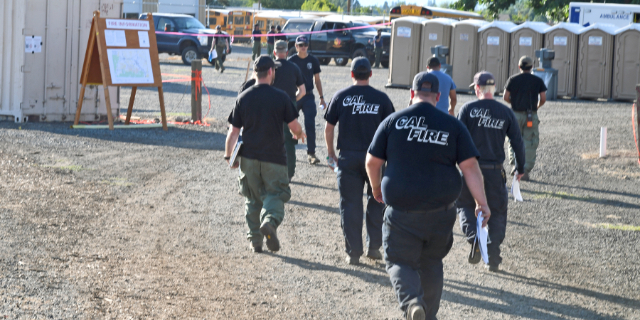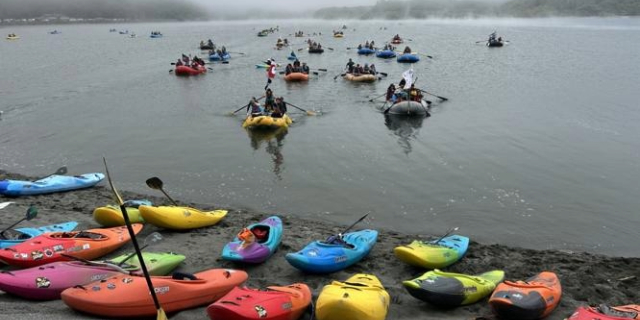ONE PAYCHECK AWAY: Is there good reason to fear homeless people?
Published 6:00 am Sunday, December 3, 2023

- Julie Akins
About a year before I lost touch with Colleen, we sat in a park talking. She was one of the subjects I interviewed while researching homelessness. “Yeah, I’ll probably die out here. I’m 70. Where am I going to go?”
Trending
She lost her mobile home when the park decided it was too old. “They knew I couldn’t move it.”
So she took what she could carry and walked away. “I worked all my life, hard jobs, I got Social Security, but it doesn’t add up to a house. When I lost my place, I knew I was finished.”
Beyond the horrors of cold, debilitating fear, loss of sleep and hunger — one of the things that surprised her most after becoming homeless was the sense of distrust she experienced, “When I lived in a house no one ever thought I was dangerous or a criminal. Of all the things — that hurt the most.”
Trending
In the discussion of rising drug use and the crisis of homelessness, communities and individuals tend to conflate homeless people with crime and danger. That makes getting help harder still for those like Colleen who lived rough on the streets. She died about a year after I interviewed her. She had no record of harming anyone.
So, do homeless people commit more serious crimes than housed people? Is there good reason to fear them?
According to Greg Townley, a professor at Portland State University who founded the Homelessness Research & Action Collaborative, the answer is no.
“It’s really important to remember that homelessness increases vulnerability to violence among people who are homeless, not among people who are housed.” In other words, the homeless themselves are more likely to suffer crime against them than to commit it.
Nearly half of the unhoused people surveyed by the National Healthcare for the Homeless Council reported experiencing violence against them. It happens most often to older people and women.
“There are many instances of housed people enacting violence against people who are homeless,” according to Townley.
According to the National Health Care Council on homelessness, from 1999 to 2017, hate crime deaths among the general population totaled 183. In this same time period, 483 homeless people were killed in attacks by housed people. The coalition also found hate crimes resulting in the death of a homeless person happened at double the rate of other hate crime deaths based on religion, race or gender identity.
For a homeless person of color or LGBTQIA+, according to the Trevor Project that tracks violence against the LGBTQIA+ community, the instances of violence against them go up, along with arrests and incarceration.
“Oh yeah, I get jumped all the time, beat up and left for dead,” James, a Puerto Rican Black man originally from New Jersey who came to Southern Oregon, told me. “I used to tell the police, but they try to find a reason to arrest me instead. I stopped calling.”
In Oregon, homeless people make up roughly half or more of all arrests, even though the population is less than 2%. According to the National Law Center on Homelessness and poverty which also reports the offenses against the homeless are typically loitering, trespass, drinking and making noise.
Many of these arrests come about by citizen reports of “suspicious” activity or welfare checks, according to Street Roots, a publication which reports on homelessness.
“On average, an increase in the number of tents and structures in an area is not associated with any increases in property crime — very close to zero,” says sociologist Charles Lanfear, who studies the relationship to homeless camps and crime in Seattle.
The bottom line: homeless people are less likely to commit crimes and more likely to be victims of crime, especially violent crime. This applies more to older people, women, and children according to extensive studies by New York University and the University of Washington.
But data is not the same as feelings. If you see a group of unhoused people hanging out with their belongs and dogs strewn about, you may feel afraid. You may not like the aesthetics of it, you may fear a lack of hygiene, you may experience an unhoused person as rude, even. But that’s not the same as homeless people being more dangerous. And that distinction makes all the difference. That distinction dictates addressing homelessness as a housing matter instead of a criminal matter.
In the next column, we’ll discuss how homelessness in politicized.









